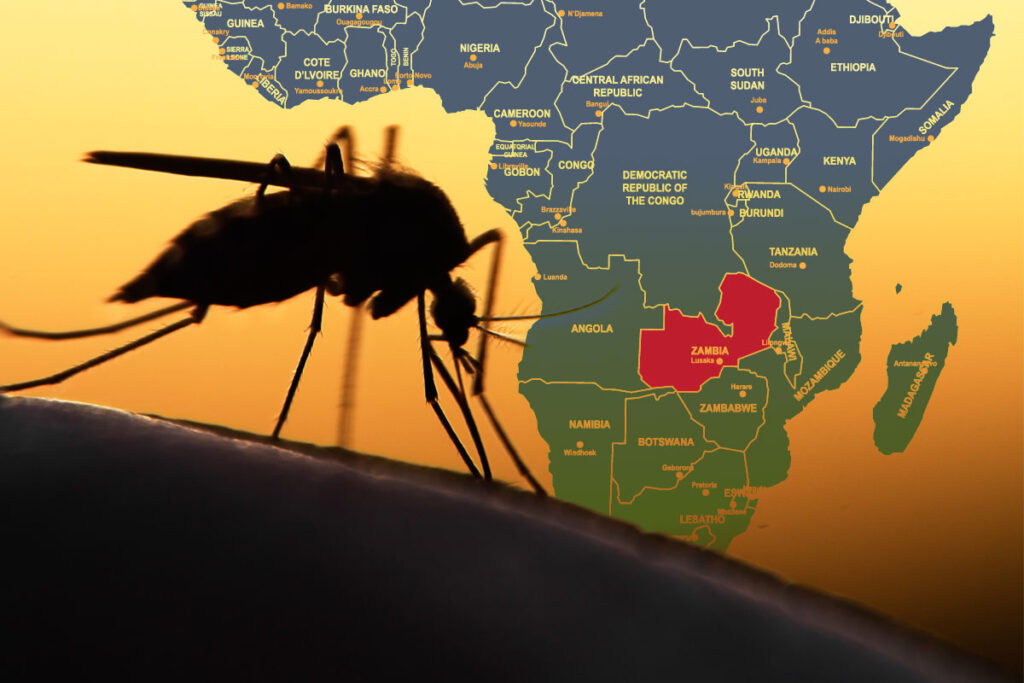Researchers have confirmed the first detection of Sindbis virus (SINV) and Eilat virus (EILV) in mosquitoes collected in Western Zambia, according to a new peer-reviewed study published in Virus Research. The work, conducted by scientists from Zambia and Japan, is part of a broader international effort to track mosquito-borne viruses across Africa.
Sindbis virus can infect people and has been linked to symptoms like fever, rash, and joint pain. Eilat virus, on the other hand, only infects mosquitoes and does not pose a risk to humans—but still offers valuable clues about how viruses evolve and spread among insect populations.
These findings add to growing evidence that parts of Zambia may serve as regional hotspots for arboviruses, including those capable of spilling over into human populations.
Sindbis Virus: A Zoonotic Risk Now on Zambia’s Radar
Sindbis virus was found in Culex univittatus mosquitoes collected in Mongu District near Zambia’s western border. This is the first time the virus has been confirmed in the country.
Genetic analysis shows that the Zambian SINV strain is closely related to others previously found in Central Africa. Laboratory testing confirmed that the virus replicates well in mammalian cells—a key sign that it could infect people under the right conditions.
In humans, Sindbis virus can cause illness marked by fever, rash, fatigue, and long-lasting joint pain. While humans are considered “dead-end” hosts—meaning they don’t pass the virus on—this discovery suggests that transmission is occurring between birds and mosquitoes in the region.
Eilat Virus Found in Multiple Mosquito Species
The team also isolated Eilat virus, a rare insect-specific alphavirus that doesn’t infect birds or mammals. It was found in two mosquito species: Anopheles coustani and Culex quinquefasciatus.
Although harmless to humans, the discovery of EILV in Zambia helps researchers better understand the ecology of mosquito-borne viruses. This strain shares about 90% genetic similarity with those previously reported in neighboring Namibia, indicating that it may already be established in the region.
Because EILV is restricted to insect hosts, it’s also being explored as a potential tool in mosquito control strategies or vaccine platforms that require safe, non-replicating viral backbones.
Why the Western Province Deserves Attention
This isn’t the first time a virus has been discovered in Zambia’s Western or Northwestern Provinces. Earlier studies have detected West Nile virus, Yellow Fever virus, and other lesser-known arboviruses in local mosquitoes.
The area’s warm, wet climate supports a wide variety of mosquito species. It’s also along bird migration routes and borders countries like Angola and the Democratic Republic of Congo—factors that can influence how viruses move across ecosystems and national borders.
Given this backdrop, the detection of SINV and EILV highlights the importance of sustained mosquito and wildlife surveillance. Without it, viruses could quietly circulate until they trigger outbreaks in humans or animals.
What This Means for Public Health and Preparedness
While Eilat virus isn’t a threat to humans, Sindbis virus is—and its discovery in Zambia for the first time is a timely reminder of how important local surveillance can be for national health security.
The virus can cause significant discomfort in infected people, including long-term joint pain, but it is often overlooked or misdiagnosed as something else. Adding SINV to the list of possibilities when diagnosing unexplained fevers could help catch cases earlier and prevent wider spread.
From a national security standpoint, early detection of zoonotic viruses is critical. Diseases like SINV, carried by birds and spread by mosquitoes, can emerge in new regions without warning. Public health officials, researchers, and policymakers need data like this to assess risks, improve diagnostics, and build early warning systems that protect both local communities and regional health systems.
Mears C, Tabata K, Ariizumi T, et al. Mosquito-borne alphaviruses in Zambia: Isolation and characterization of Eilat and Sindbis viruses. Virus Research. 10 July 2025.
This study was supported by the Japan Agency for Medical Research and Development (AMED), the Japan International Cooperation Agency (JICA), the Japan Science and Technology Agency (JST), and the Japan Society for the Promotion of Science (JSPS).


